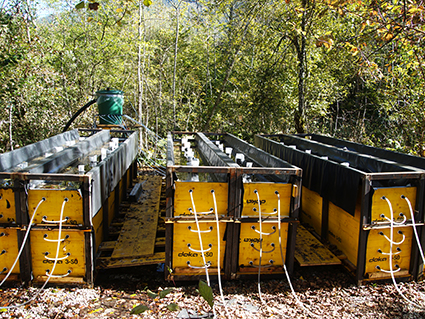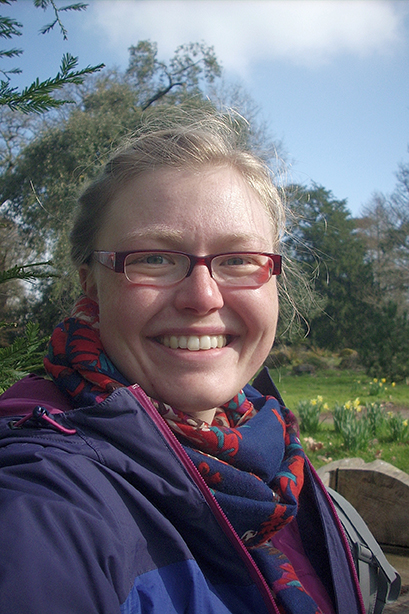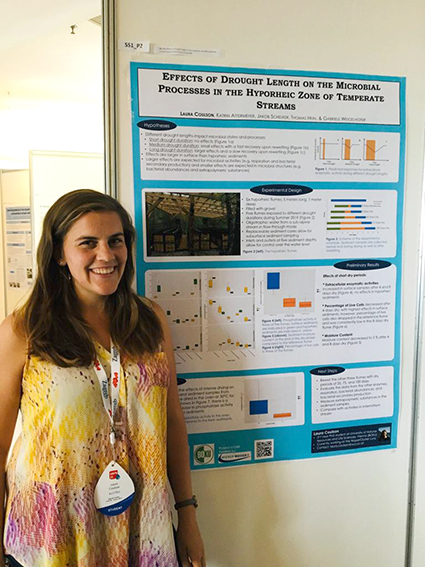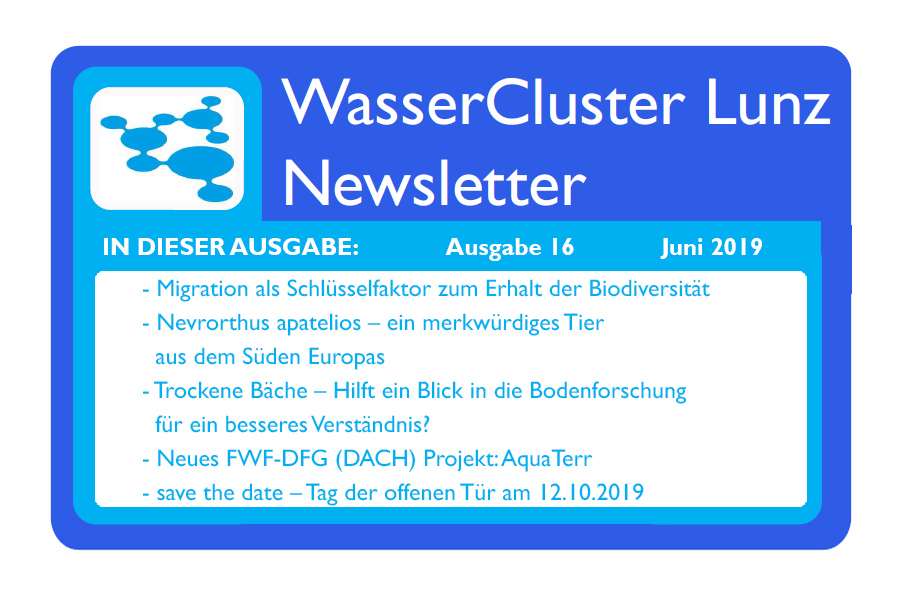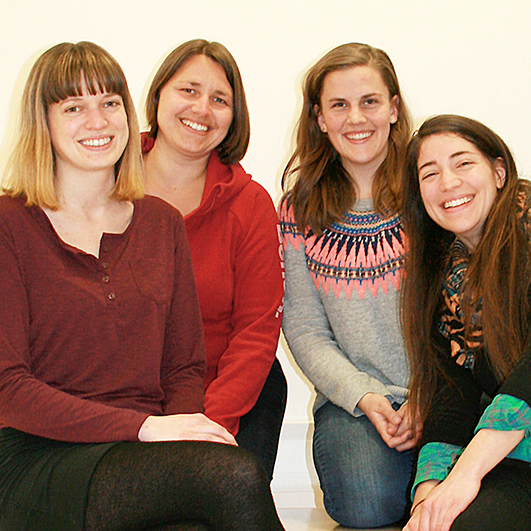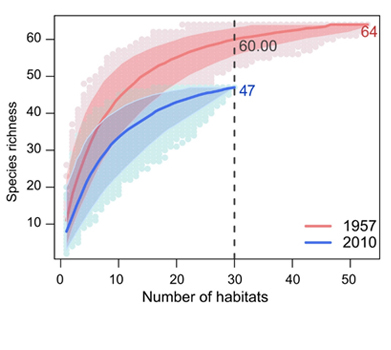Until Sunday 25.08.2019 there is still the possibility to listen to the report "Arbeiten mit Wasser" in the series "Moment - Leben heute" on the Ö1 website.
Find out more about the work on WasserCluster Lunz (18:15 - 18:26 and 18:53 - 18:59), what the flumes (see photo) are used for and how water is managed, tested and clarified.
Here you find the report: https://oe1.orf.at/programm/20190818/561273/Arbeiten-mit-Wasser
In July 2019 Magdalena Pöhm finished successfully her MSc-thesis with the title "Effects of hydropeaking on benthic algae in alpine rivers" under Supervision from Thomas Hein and Elisabeth Bondar-Kunze (AG BIGER).
Congratulation!
The scientific poster "Effects of drought length on the hyporheic microbial processes of intermittent streams" by Laura Coulson (PhD in the working group BIGER) was awarded the third place at the Symposium for European Freshwater Sciences (SEFS11).
Congratulations!
Hier ein Themenüberblick der Ausgabe 16 - Juni 2019:
- Migration als Schlüsselfaktor zum Erhalt der Biodiversität
- Nevrorthus apatelios – ein merkwürdiges Tier aus dem Süden Europas
- Trockene Bäche – Hilft ein Blick in die Bodenforschung für ein besseres Verständnis?
- Neues FWF-DFG (DACH) Projekt: AquaTerr
- save the date – Tag der offenen Tür am 12.10.2019
In April 2019 Claudia Schneider finished successfully her MSc-thesis with the title "The effect of mixotrophic chrysophytes on zooplankton in pelagic food webs" under Supervision from Robert Ptacnik and Csaba Vad (AG AQUASCALE).
Congratulation!
With the project idea "Biogeocaching – a scavenger hunt for the treasures of biology around Lake Lunz” Astrid Harjung and her colleagues Laura Coulson, Romana Hödl and Katrin Attermeyer have won one of the EGU Public Engagement Grants 2019.
The European Geosciences Union (EGU) supports every year two projects of EGU members with this grant to raise awareness of the geosciences outside the scientific community.
You can find more information here.
Tamara Löwenstern finished successfully her MSc-thesis with the title "Meta-Ecosystem for studying coexistence along environmental gradients" under Supervision from Robert Ptacnik (AG AQUASCALE)
in March 2019.
Congratulation!
Zsofia Horvath (aquascale lab, WasserCluster Lunz) and the German Centre for Integrative Biodiversity Research (iDiv) have established that the destruction of habitat causes double damage to biodiversity. If habitat patches disappear, not only do the species living there become extinct, but species richness in neighbouring patches also declines. The reason for this additional species loss is the large physical distances between the remaining habitat patches, the researchers write in the journal Ecology Letters.




